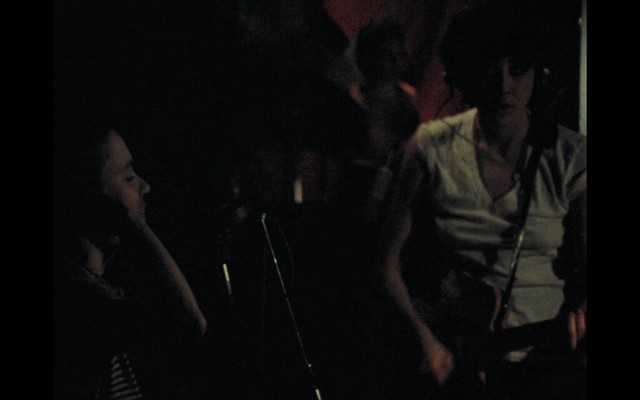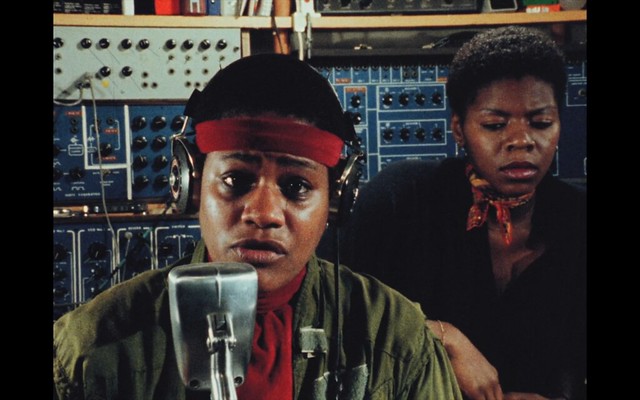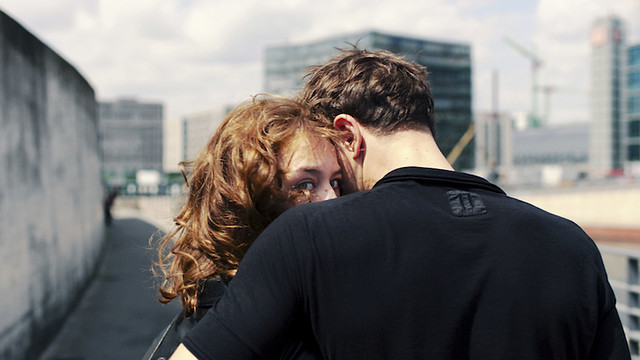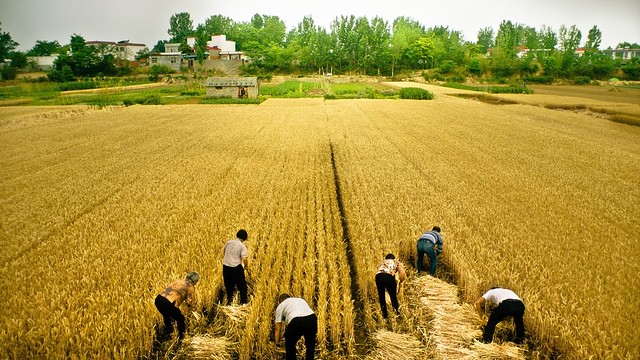






The post-revolution USA left is still very much factionalized- there is white activists who publish influential 'The Socialist Youth Review', there's the party officials who are very much keen on keeping taps on noise-makers, there's the woman's army- a radical militant group who is preparing for armed struggle and there's radical artists and singer types who preach their own little radical feminism.
The main character of Born in Flames is Adelaide Norris (Jean Satterfield), a lesbian and a varsity athlete who is a radical women's rights activist. She is under surveillance by the FBI. Norris is the one who sees through the system for what it is even after the revolution: the power corrupts, and the society is once again tilting towards fascism. As before, she is everything white patriarchal society hates - a homosexual woman of color. As Norris slowly gets into the world of armed struggle with the guidance from Zella (Florynce Kennedy) and tries to unite the prevalent factionalism of the left, the government goons assassinate her in the jail cell after snatching her at the airport, as she did training with the sisters in the Middle East. It's her death that unites all activist women.
Born in Flames is quite a prophetic film and a stark warning against people who dream of utopia after one revolution. As all of us Bernie supporters knew, even if we ever have our fundamental change in our society, there will be a hard work ahead of us. We have to be ready/strive for continuous revolutions in order to keep the ideal. The film foretells the importance of media as well. Like many of the 80s dystopian films, namely, Carpenter's They Live, the film ends with blowing up the TV antenna on top of, get this, the World Trade Center. Shot in documentary style with news and surveillance footage and narration through out in gritty 80s New York setting, the film is a truly independent, original, American film. There are scenes of women's rape prevention bicycle gang, a rapid montage of working women in all different jobs, including sex work, as seamlessly cut from packing meat, to putting on a condom on an erect penis, to selling coffee at a bodega. There's a women punk rock concert with some great music. Can't believe I haven't watched this before. Born in Flames is a radicalest feminist film I've ever witnessed. It's so good.




